Written by THE ASSOCIATED PRESS
The United Nations reported Tuesday that fresh pledges by governments to cut greenhouse gas emissions raise hopes but aren’t strict enough to avoid catastrophic global warming.
A report by the U.N. Environment Programme found recent announcements by dozens of countries to aim for “net-zero” emissions by 2050 could limit a global temperature rise to 2.2 degrees Celsius (4 F) by the end of the century.
That’s close to the less stringent target set in the Paris climate accord of capping global warming at 2 degrees Celsius (3.6 F) by the end of the century but far from the agreement’s most ambitious goal of keeping it to 1.5 degrees Celsius C (2.7 F).
The United States, the European Union and dozens of other countries have set net-zero emissions targets. However, the Environment Programme report said the net-zero goals that many governments announced in the run-up to a U.N. climate summit in Glasgow next week remain vague, with much of the heavy-lifting on emissions cuts pushed beyond 2030.
“Climate change is no longer a future problem. It is a now problem,” the program’s executive director, Inger Andersen, said.
“To stand a chance of limiting global warming to 1.5 C, we have eight years to almost halve greenhouse gas emissions,” she said, adding: “The clock is ticking loudly.”
The report is one of several recent studies to examine the gap between what countries have pledged to do to cut emissions of planet-heating gases and what scientists say is required to meet the Paris goals.
Leaders, diplomats, scientists and environmental campaigners will meet in Glasgow from Oct. 31-Nov. 12 to discuss how countries and businesses can adjust their targets to avert the more extreme climate change scenarios that would result in significant sea-level rise, more frequent wild weather and droughts.
Related Stories
‹
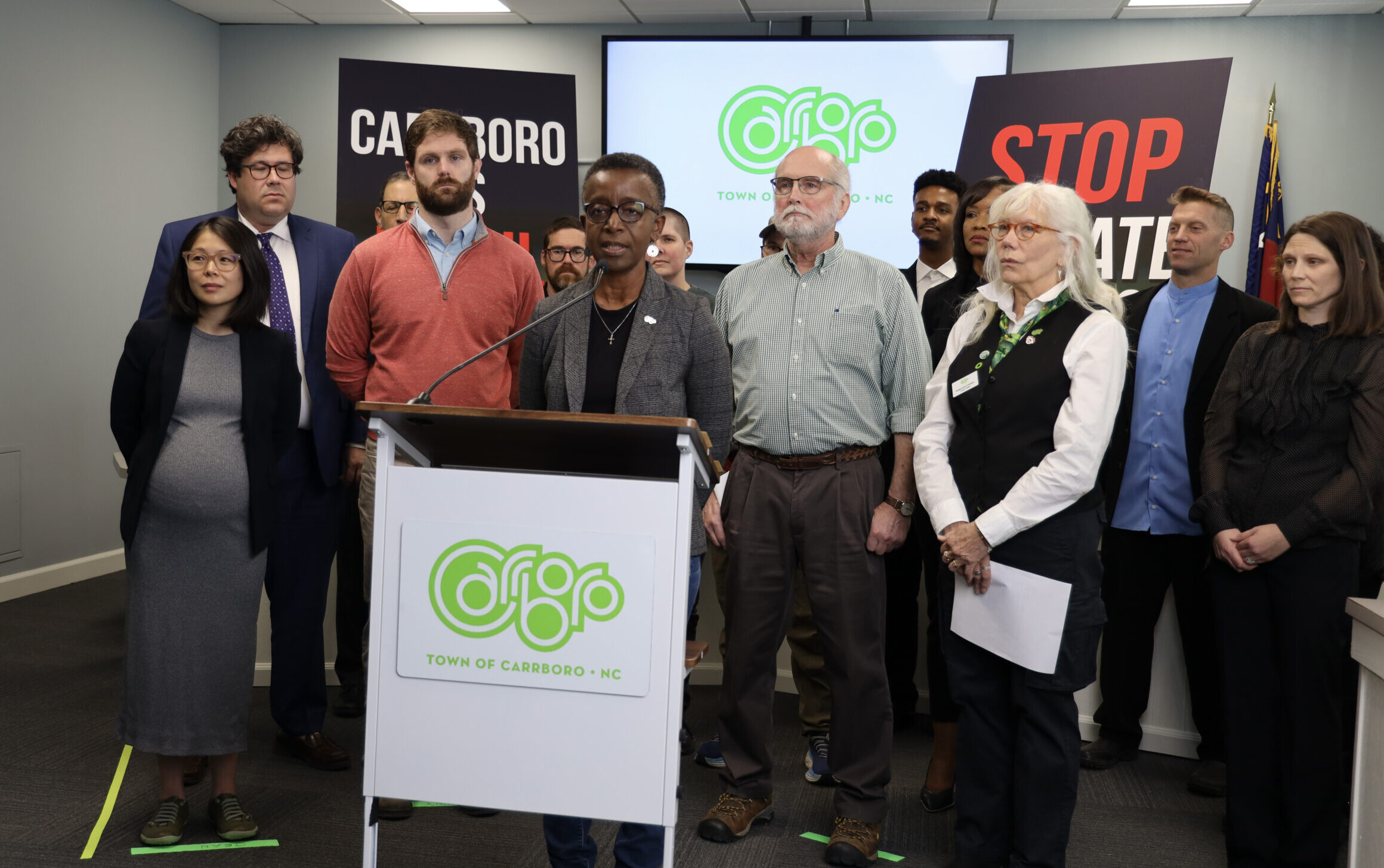
Town of Carrboro Files Lawsuit Against Duke Energy Over Climate Change and Deception on Fossil Fuel EffectsCarrboro is suing Duke Energy over its contributions to climate change and the resulting economic pressures put onto the local government.
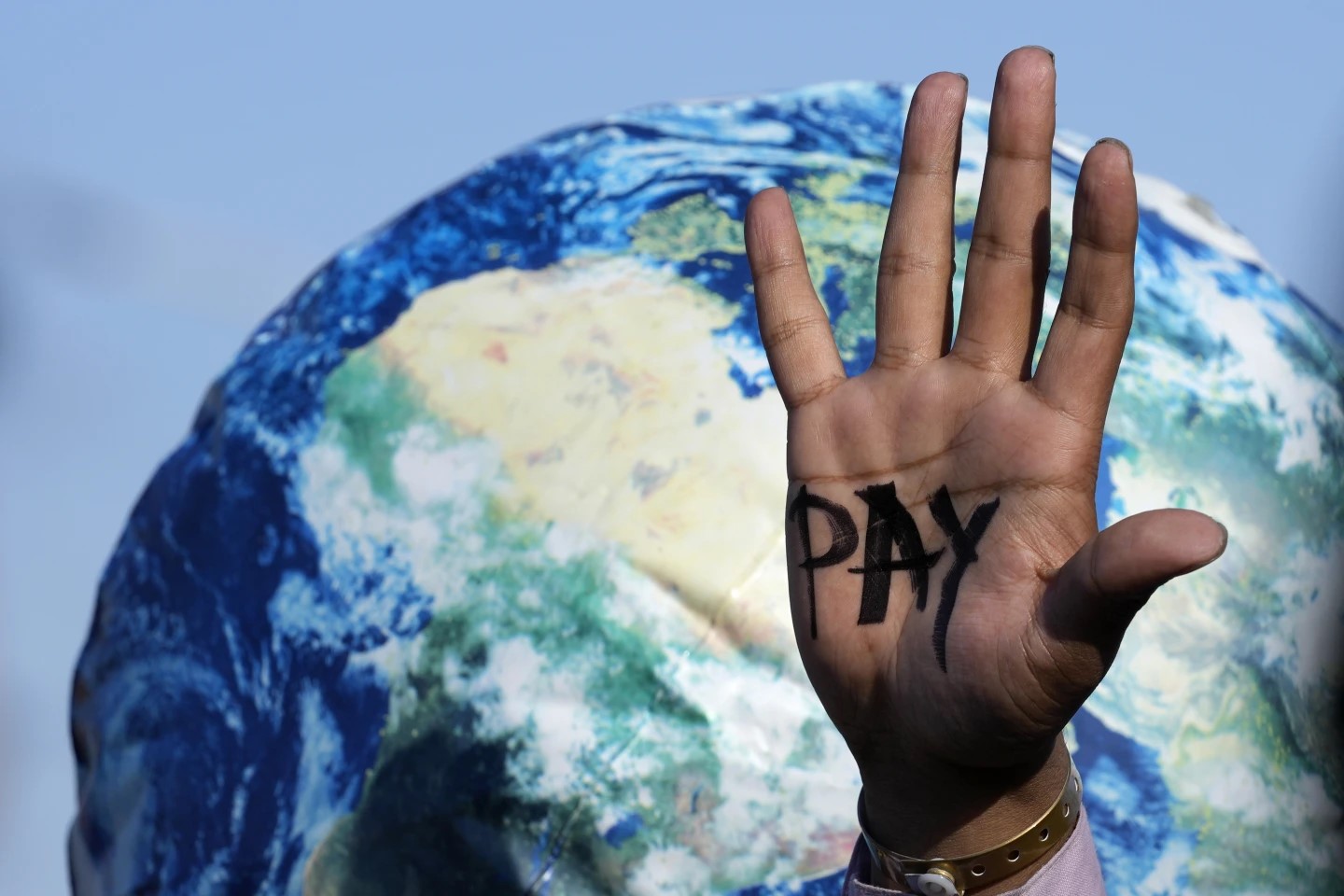
5 Big Promises Made at Annual UN Climate Talks and What Has Happened SinceWritten by GAURAV SAINI and SIBI ARASU When United Nations climate talks wrap up at some point this week in Dubai, big promises will likely be made about how the world is going to combat climate change, caused by the burning of fossil fuels like oil, gas and coal. Negotiators are debating how fast fossil […]

This Summer Was a Global Record Breaker for the Highest Heat Ever Measured, Meteorologists SayWritten by JAMEY KEATEN and SETH BORENSTEIN Earth has sweltered through its hottest Northern Hemisphere summer ever measured, with a record warm August capping a season of brutal and deadly temperatures, according to the World Meteorological Organization. Last month was not only the hottest August scientists ever recorded by far with modern equipment, it was […]
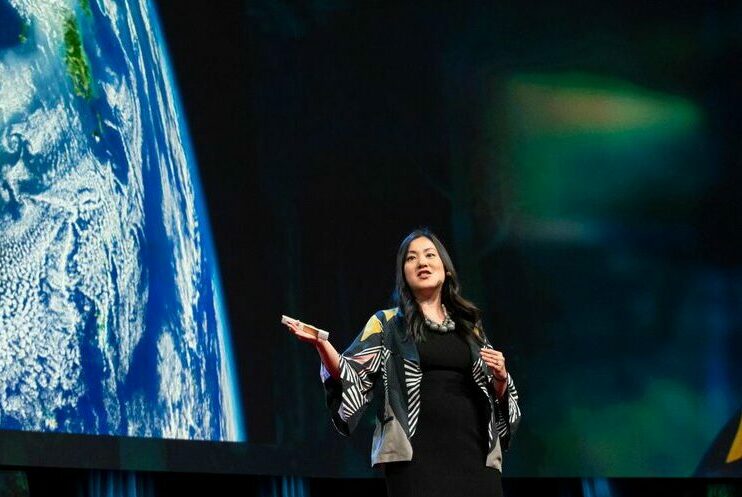
Policy, Language and Tech: UNC's Angel Hsu Discusses Combating Climate ChangeAngel Hsu is an associate professor in UNC’s environmental ecology program. She recently spoke with 97.9 The Hill about her work as the director of a data-driven envirolab and how technology can teach us more about combating climate change on a local government level. Check out highlights of the conversation below, which are lightly edited […]
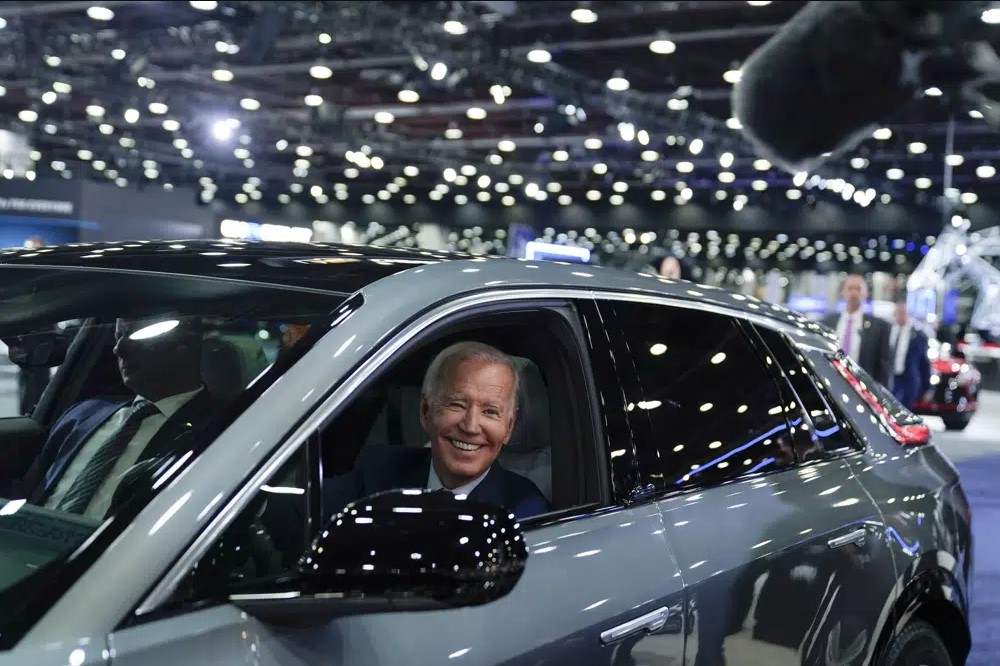
Biden’s Next Climate Hurdle: Enticing Americans To Buy GreenWritten by CHRIS MEGERIAN, HANNAH FINGERHUT and MATTHEW DALY President Joe Biden persuaded Democrats in Congress to provide hundreds of billions of dollars to fight climate change. Now comes another formidable task: enticing Americans to buy millions of electric cars, heat pumps, solar panels and more efficient appliances. It’s a public relations challenge that could […]
![]()
Climate Talks Draft Agreement Expresses ‘Alarm and Concern’Written by SETH BORENSTEIN, ANIRUDDHA GHOSAL and FRANK JORDANS Governments are poised to express “alarm and concern” about how much Earth has already warmed and encourage one another to end their use of coal, according to a draft released Wednesday of the final document expected at U.N. climate talks. The early version of the document […]
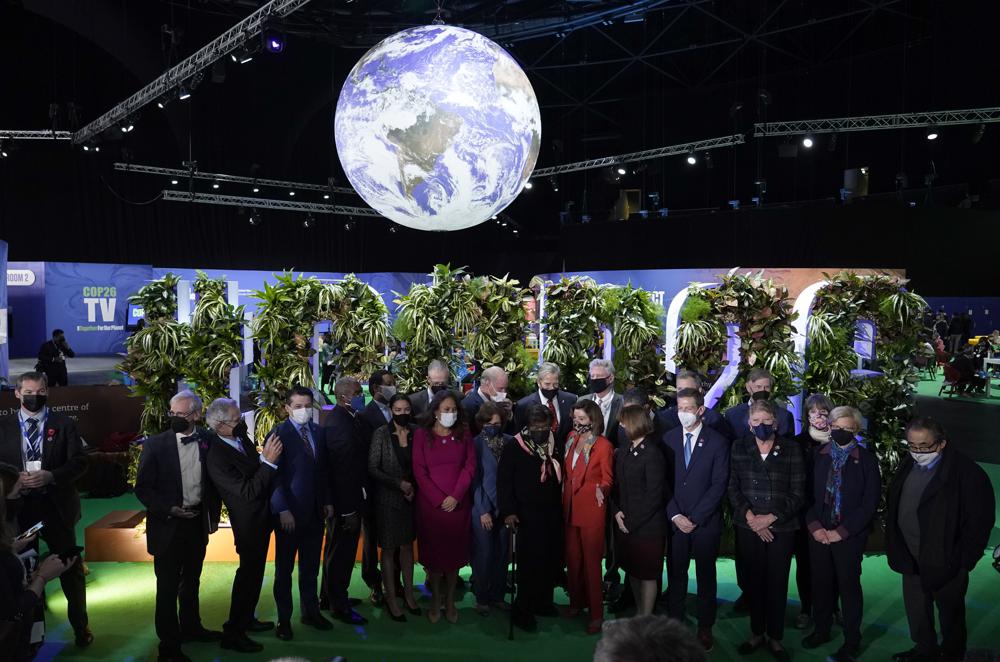
Climate Talks Struggle With Gap Between Rich, Poor NationsWritten by SETH BORENSTEIN AND ANIRUDDHA GHOSAL Large rifts remain as United Nations climate talks tick down to a Friday deadline. A lot of the divide comes down to money, which nations have it and which do not. So it’s time for the diplomatic cavalry to ride in. Democratic Congress members also joined the two-week […]
![]()
Pandemic, Politics Drive XI’s Absence From Global TalksWritten by KEN MORITSUGU Chinese President Xi Jinping has been absent from the Group of 20 summit in Rome and this week’s global climate talks in Scotland, drawing criticism from U.S. President Joe Biden and questions about China’s commitment to reducing greenhouse gas emissions. China is the world’s biggest emitter of carbon dioxide and has pledged to […]
![]()
Biden Climate Plan Aims To Reduce Methane EmissionsWritten by MATTHEW DALY The Biden administration on Tuesday launched a wide-ranging plan to reduce methane emissions, targeting a potent greenhouse gas that contributes significantly to global warming and packs a stronger short-term punch than even carbon dioxide. The plan was announced as President Joe Biden wraps up a two-day appearance at a United Nations […]
![]()
UN: Net Zero Pledges on Climate Give Hope, but Still VagueWritten by THE ASSOCIATED PRESS The United Nations reported Tuesday that fresh pledges by governments to cut greenhouse gas emissions raise hopes but aren’t strict enough to avoid catastrophic global warming. A report by the U.N. Environment Programme found recent announcements by dozens of countries to aim for “net-zero” emissions by 2050 could limit a […]
›







